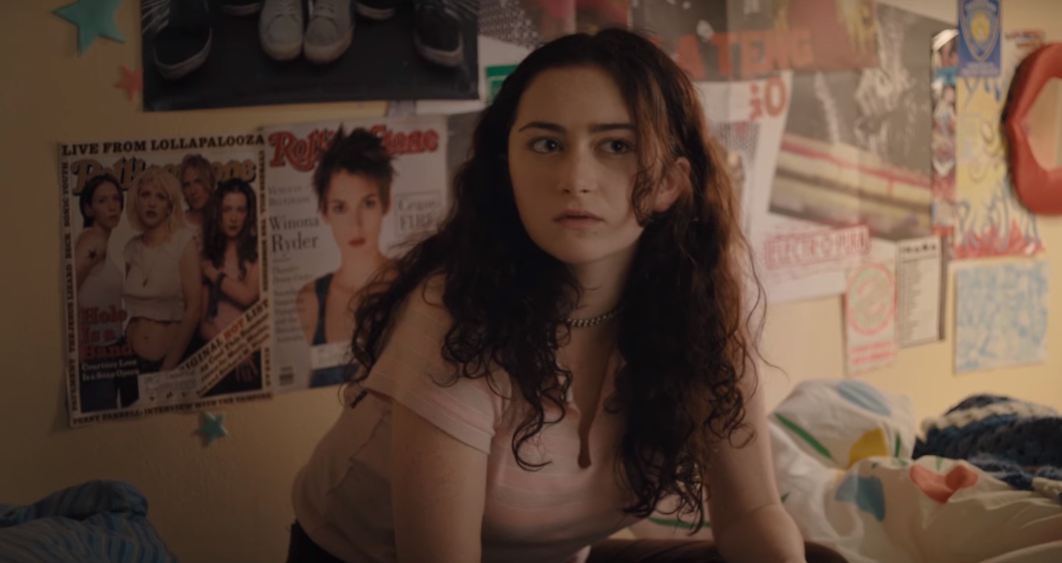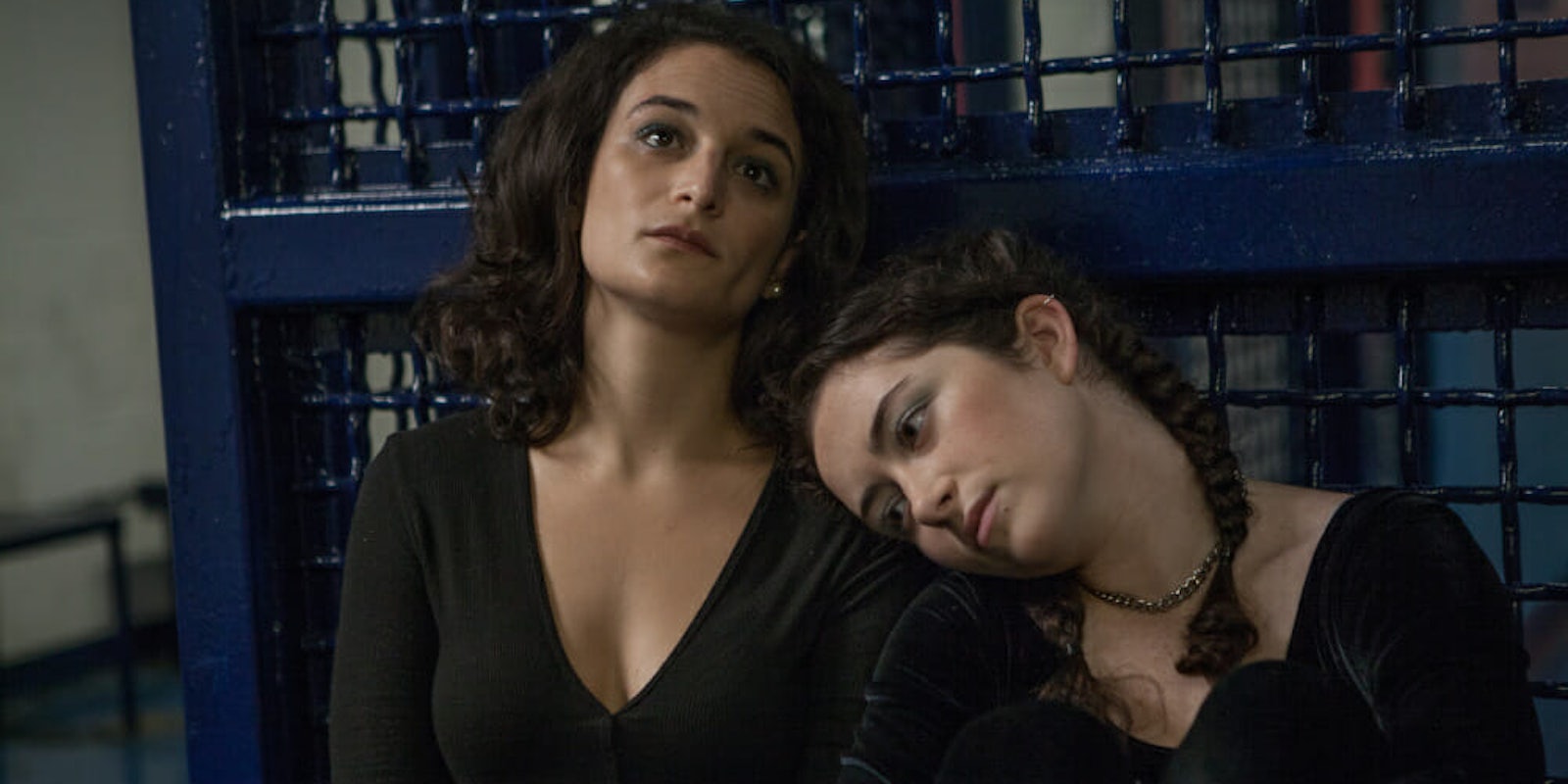In Landline, the new film from Gillian Robespierre, we’re dropped into New York City, 1995. There are many totems of the time: checking voicemails at a payphone, waiting for a dot matrix printer to screech to life, Hillary Clinton on TV, a Lorena Bobbitt reference, the 1994 Rolling Stone with Liz Phair on the cover, mixtapes, PJ Harvey.
They had to do some creative “shooting up” to make sure they didn’t catch a Starbucks, Citi Bike, or Chase that wasn’t there 20 years ago.
The film once again pairs Robespierre with Obvious Child star Jenny Slate, playing Dana, an engaged 20-something who’s doubting her path in life. Younger sister Ali (Abby Quinn) is inhabiting her rebellious stage; their parents, Pat (Edie Falco) and Alan (John Turturro), are going through their own rough patch.
Yes, a story about a dysfunctional family in ‘90s New York City isn’t original, but thankfully the film, released by Amazon Studios on Friday, doesn’t become a montage of only-’90s-kids references. Slate does drink Zima in one scene, and while it’s unfortunately come back from the dead, Robespierre says when they were filming it had to be ordered on eBay and when it arrived it was green, so they had to empty it out and make their own. Rolling Stone sent them many of the covers used in Ali’s room, and a production designer tracked down the actual DJ from a rave Ali attends, who gave them authentic fliers.
Robespierre wrote the film with Elisabeth Holm, who also co-wrote 2014’s Obvious Child. Both Holm and Robespierre’s parents divorced when they were teenagers, and they wanted to make a film that showed how that could make a family stronger. In the film, both Dana and her father are cheating on their significant others, but the film really hinges on the relationship between women.

Robespierre says that now we’re more willing to talk about whether “monogamy works or not.”
More modern shows are exploring infidelity from a woman’s perspective—Insecure, GLOW—and Landline illustrates the unequal playing field for men and women who cheat, even now.
“People seem to understand why [Alan] did it,” Robespierre says. “‘Oh, he’s married to a very tough lady.’ [Dana] is lying and cheating but still living life as her true self, and I think people have a problem with that. I remember we had a couple notes called where our financier just wanted to make sure that Jenny’s character was likable, and Edie’s character was likable. And that was so hard for Liz and I. We just don’t necessarily agree that male characters have to live up to those same likable standards as female characters do.
“We want characters to be likable but not because they’re cute or goofy or silly or tragic or beautiful. We want them to be likable because they’re vulnerable and strong and make mistakes and they say messy things and they’re not [being] punished for it.”
There’s at least one scene that has some modern resonance: Hillary Clinton is shown giving a speech on TV. “We wrote it thinking it was gonna be really funny,” says Robespierre. But that was before the election. Now she likes that the unfortunate reality “weighs it down a bit.”
One of the bigger threads of Landline is communication, which was mostly limited to phones in 1995. In one scene, Dana calls into work on a payphone and then disappears into the city. There are no incessant pings or texts; she is free in a way we’re not now. The home computer makes an appearance, and provides one of the film’s dramatic pivots. Robespierre says her family had a fax machine in 1995 for her dad’s job, and the first fax received was a co-worker’s list of “dumb blonde jokes.”
“When I don’t have my phone on me or close to me, I feel phantom vibrations and it’s really just so sad,” says Robespierre. “I mean I love being able to call 911 if I have to and I love maps but I just don’t know if I really love who I am when I’m so attached to this device. And in the ‘90s, we weren’t. We were attached to our landline phones and that was really the only hub of the house and that was the only way to communicate with the outside world.”
Ali and Dana grow closer as the result of family and interpersonal drama, and they’re really the heart of Landline; Quinn especially is the film’s standout, a mirror to Slate’s free-falling character. But Landline ties up loose ends so neatly it’s hard to feel empathy. In one scene, Pat, buried under resentment toward her husband, goes to a bar, ostensibly to have a fling. It ends before any real truth emerges, but it was the one scene in the film that I wanted to see more of.
Would Landline be a different film if it were set in 2017? Maybe not.
“I think it’s always been very hard to communicate in an honest, truthful way with people you love and who are close to you,” says Robespierre. “I don’t necessarily think technology has made that any easier, or any harder. I do think we are no longer forced to do certain things face to face and we no longer gather around the one family TV together.”


